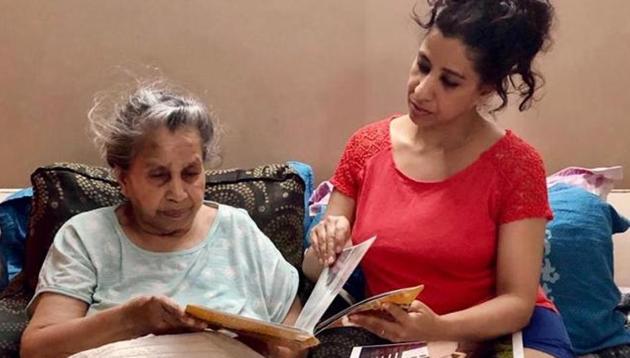Life in the time of Covid-19: Finding new ways to care, and self-care
The most common concern amid the Covid-19 lockdown is running out of medication and not being able to fill up a prescription again, or replace an essential device like a pulse oximeter or glucose monitor.
When the going gets tough, the tough will somehow get by. But what if you’re at home with a loved one who is frail, aged or ailing? It’s hard being the only caregiver, with little or no help.

It can help to create contingency plans, take precautionary measures, and try and build a new support system to replace the one you no longer have access to. And do not neglect to take care of yourself as well.
Plans A and B
The most common concern is running out of medication and not being able to fill up a prescription again, or replace an essential device like a pulse oximeter or glucose monitor. Nita Ghosh of Kolkata typically kept her husband’s medication stocked for three months at a time — he has a motor neuron disease. But with stocks running low with suppliers, her own stocks dipped to 15 days’ during the first lockdown. Nita has since expanded her list of stockists in the city, so she doesn’t have to rely on only one.
She has also contacted her local police station.
On their advice, she sent a photo of her husband’s disability certificate to his physiotherapist in case she needed to call him for a session and he was stopped while in transit.
Stepping up
Family members are also learning how to fill in for medical assistants in case they can’t make it. Software engineer Rajeshwari Mitra from Bhubaneswar is helping her ailing father, a neurological patient, with his exercise regimen. “He is bedridden, but my mother and I coax him to sit up and do his stretches,” she says. Keeping up an ailing person’s morale and encouraging him to stick to his routine are essential, when even the local doctor may not be a phone call away.
Rajni Aggarwal, who works with an international packers firm in Delhi, lives with her mother who is confined to her bed by rheumatoid arthritis and a spine fracture. There are many factors pulling Rajni down.
“The agency that provided attendants is charging double. Stress caused mom to have bladder issues and I began to get nervous. I called two of our local doctors. One said he would a house call, for Rs 5,000,” she says.
Her support system came in handy. She did a video call with her friend’s mother, a retired doctor; her medication has calmed Rajni’s mother.
During the day Rajni does yoga, listens to music and makes caricatures of herself and her friends which she then shares via WhatsApp. These conversations help lift her spirits, and her mother’s. “I show them to my mom and we have a good laugh,” Rajni says. “In these times, that is so important. It doesn’t make the troubles go away, but it makes them smaller.”






